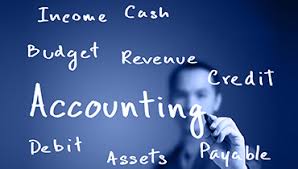 It can be argued that strict budgeting is far more important for low incomes compared to high ones. When you need to know precisely where each and every penny is going, you need to also make sure that you have given yourselves the tools to allow it. Here are three tips you can use to make sure you are budgeting effectively.
It can be argued that strict budgeting is far more important for low incomes compared to high ones. When you need to know precisely where each and every penny is going, you need to also make sure that you have given yourselves the tools to allow it. Here are three tips you can use to make sure you are budgeting effectively.
budgeting tips
 When making a budget, most people find that they need a structured method in order to help them stick to it. While there are many different budgeting methods out there, one of the most popular is the envelope method.
When making a budget, most people find that they need a structured method in order to help them stick to it. While there are many different budgeting methods out there, one of the most popular is the envelope method.
 You can spend all day telling your clients that they need to keep their books in better order, but what if you aren’t following your own advice? Even finance majors and accountants at the start of their career may know how to balance a budget, but sometimes they can neglect their own personal finances. It might have something to do with being under the pressure of maintaining other people’s financial wellness, but it’s difficult to give advice that you aren’t taking yourself. In fact, a professional with an online bachelor’s degree in accounting with bad credit and unpaid debts might not be hired by companies with minimum credit requirements. If you already have a good deal of knowledge on accounting and budgeting practices, treat yourself like one of your own clients.
You can spend all day telling your clients that they need to keep their books in better order, but what if you aren’t following your own advice? Even finance majors and accountants at the start of their career may know how to balance a budget, but sometimes they can neglect their own personal finances. It might have something to do with being under the pressure of maintaining other people’s financial wellness, but it’s difficult to give advice that you aren’t taking yourself. In fact, a professional with an online bachelor’s degree in accounting with bad credit and unpaid debts might not be hired by companies with minimum credit requirements. If you already have a good deal of knowledge on accounting and budgeting practices, treat yourself like one of your own clients.
 What’s the most difficult part of buying a house? If you ask most people, probably the deposit. The deposit is the big chunk of cash that you have to save up to convince the bank that you’re really serious about buying a house and that you’re willing to risk your own money in the process.
What’s the most difficult part of buying a house? If you ask most people, probably the deposit. The deposit is the big chunk of cash that you have to save up to convince the bank that you’re really serious about buying a house and that you’re willing to risk your own money in the process.
The good news is that the housing market has rebounded sharply in the last few years, thanks to the improving job situation as well as the growth in the global economy. But for people wanting to buy a house, this has meant rising deposits. Currently, the average home price is standing at around $200,000, perhaps a touch over. With most mortgage brokers asking for a 5 percent deposit, that means that families have to pay out around $10,000 to secure their new house and a mortgage. For many families, that’s a lot of money to have to save up, especially those on modest incomes.
 Are you tired of winging it? You know, just letting your family’s financial chips fall where they may because it seems so much easier than actually thinking about your spending habits? Sadly, you are in the majority; most Americans do not properly budget their expenditures. A proper budget can bring with it a host of positives: less debt, more money for college and retirement, to name but a few. But just having a budget is not enough in and of itself: you must also avoid the common mistakes that budgeting can sometimes lead to.
Are you tired of winging it? You know, just letting your family’s financial chips fall where they may because it seems so much easier than actually thinking about your spending habits? Sadly, you are in the majority; most Americans do not properly budget their expenditures. A proper budget can bring with it a host of positives: less debt, more money for college and retirement, to name but a few. But just having a budget is not enough in and of itself: you must also avoid the common mistakes that budgeting can sometimes lead to.
If you’re ready to take the next step – to really buckle down and track where the money’s going with an eye toward righting your ship for a more secure journey into the future – you’ll want to read this list of ways the budgeting process can go wrong. Then, just do the opposite!
- Not Using Family Budgeting to Help Pay Off Debts
It’s great that you’ve decided to start budgeting and it’s even better that you’re sticking to it. You’ve discovered that getting a handle on your spending has freed up additional money every month. Now is the time to go the final step in the process by using those new-found resources to pay down whatever debts you may have. Think of it this way: you’ve stopped the bleeding, now it’s time to heal the wound. If you’ve only been paying the minimums on your credit cards, start throwing more money at them. If you’ve got a high-interest rate, long-term loan on your car, start paying more than what is required in order to shorten the loan and lessen your interest burden. Failing to pay down debt as part of your new budget is one of the biggest mistakes you can make.
